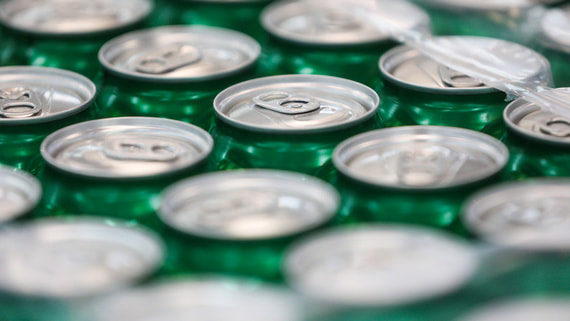The largest manufacturer of aluminum cans sold the Russian business
[ad_1]

The Arnest group of companies bought out three plants for the production of aluminum cans for beer and soft drinks from the American packaging manufacturer Ball Corporation. This is stated in the message of the parties. It follows from it that we are talking about production facilities in the Moscow, Leningrad and Chelyabinsk regions, which produce more than 5.5 billion units of products per year. Earlier, Ball Corporation announced the construction of a fourth plant in the Ulyanovsk region, but whether this project was included in the company’s deal is not reported. Inquiries to their representatives remained unanswered.
Ball Corporation is engaged in the production of packaging for beverages, home and personal care products. Her clients include the NASA space agency, the US Air Force and the US Air Force, according to her website. In 2021, the company’s total revenue amounted to $13.8 billion. The consolidated revenue of the three Russian plants in 2021 amounted to 43.8 billion rubles, EBITDA – 11.3 billion rubles. Ball Corporation occupies about 70% of the domestic market for the production of aluminum cans, follows from the message of Arnest Group. Its largest supplier isRusal“. His representative declined to comment.
The sold plants last year accounted for about 4% of the company’s total revenue and 8% of Ball Corporation’s operating income. The company’s factories in Russia produced about 5% of the world’s supply of beverage cans (112.5 billion cans in total), according to the profile publication ProfiBeer.
Arnest Group produces perfumery, cosmetics and household products in aerosol packaging at two factories in Nevinnomyssk in the Stavropol Territory and in Novomoskovsk in the Tula Region, the company’s website says. Among its brands are Charm, Symphony, Lyra, Lethal Force, Garden, Mebelux, etc.
In 2021, the company’s revenue amounted to 14.9 billion rubles, net profit – 583 million rubles. (according to SPARK-Interfax). Market participants call its president Alexei Sagal the founder of the company. JSC Arnest itself does not disclose its founders. According to SPARK-Interfax, as of 2020, Sagal, Sergey Povov and Vladimir Guryanov collectively owned 3.27% of the company’s shares.
Ball Corporation received $530 million from the sale of Russian plants, it said in a statement. Managing partner of Walnut Capital Artem Motorny believes that this is about 30% less than the market price.
Experts interviewed by Vedomosti note that there is currently a shortage of aluminum packaging for drinks on the market for low-alcohol and non-alcoholic products. According to the President of the Union of Producers of Juices, Water and Drinks (Soyuznapitka), Maxim Novikov claims that last year alone, the shortage of such containers amounted to 1-2 billion units. He attributes this to changing consumption and growing demand for aluminum packaging, for example from beer producers. As for this year, the deficit was largely due to the unclear status of the Russian assets of Ball Corporation, says Mikhail Burmistrov, CEO of Infoline Analytics. In the spring, the American company announced a reduction in the production of aluminum cans. Novikov also adds that two companies produce such products in Russia – Ball Corporation and Can Pack. Both of them have American roots and work on foreign equipment. According to him, one Russian industrial group planned to begin construction of the plant in February 2022, but the project had to be closed due to the start of the NWO and the sanctions that followed. He did not name the company.
An important moment in the development of the now former business of Ball Corporation is the decision of the buyer to complete the construction of a new plant, says Daniil Briman, Chairman of the Council of the Union of Russian Brewers. According to him, this is a key event awaited by the producers of not only beer, but also soft drinks, primarily energy drinks. This will reduce the bottleneck. Burmistrov also claims that Arnest Group, as a buyer of these assets, is comfortable for market participants, since it has extensive experience in contract manufacturing of private labels (PL) for chains and large brands, so they know it. The deal, according to him, is of great importance for Rusal, as the purchased plants are large consumers of aluminum. Leonid Khazanov, an independent industrial expert, also agrees with this, who recalls that in May 2022 Arnest launched a project for the production of aerosol cans from low-carbon aluminum produced by Rusal. The purchase of the Ball Corporation factories, he said, will strengthen the business relationship between the two companies.
Nevertheless, Novikov fears that in the current economic situation, the consumption of drinks in all categories may sag, and this will affect the performance of enterprises. “The experience of previous crises has shown that the fall can be as low as 10%,” he predicted. In total, Russia produced 8.5 billion liters of packaged water in 2021, 7 billion liters of soft drinks, 2.5 billion liters of juices, and about 300 million liters of vegetable drinks. None of the categories, except water, has recovered to the level of 2008, reminds Novikov.
[ad_2]
Source link





